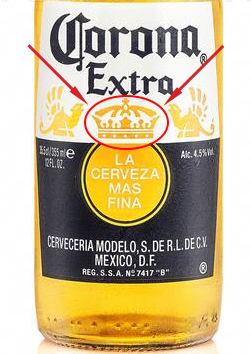In December 2019, news slowly started to come out from Wuhan, China that people were going to hospital and were sick with a strange new respiratory illness. Many of these people had severe pneumonia, and at the time, the cause of this illness was not known. However, in early 2020, scientists determined that the illness, now called “COVID-19”, was the result of infection by a new type of coronavirus that would be later named “SARS-CoV-2.”
This new virus has spread around the world causing a pandemic that has changed all of our lives over the past two years, and will continue to affect how we live and interact with each other into the future.
In this blog I am going to answer some common questions my students ask me about coronavirus and COVID-19.
Q. What is the difference between “coronavirus” and “COVID-19”?
First, let’s clear up a common confusion. Many people think that the new coronavirus and COVID-19 is the same thing. They are related but they are not the same thing.
The new coronavirus’s official name is “SARS-CoV-2”, which is an abbreviation for:
SARS-CoV-2 = Severe Acute Respiratory Syndrome – CoronaVirus – 2
And the illness is called “COVID-19”, which is an abbreviation for:
COVID-19 = Corona Virus Disease – 2019 (2019 was the year the new virus was discovered)
Many people say “I was infected with COVID”. This is incorrect. People are infected with SARS-CoV-2, not COVID-19. COVID-19 is the illness that you develop. So they are related, but they are not the same thing.
Q. What is a coronavirus?
Coronaviruses are a big family of different viruses. Some of them infect people, and others infect animals, including bats, camels, and cattle.
Up to now, seven human coronaviruses (HCoVs) have been identified. Four of them are common, and usually cause only mild respiratory illnesses in healthy human adults. These four coronaviruses cause one third of common cold infections. The other three human coronaviruses are MERS-CoV, SARS-CoV-1 and the new coronavirus is called SARS-CoV-2.
Everyone has had many colds in the past, so everyone has been infected with a coronavirus, at least once in our lifetimes. Did you know that?
Q. Why is it called a coronavirus?
I tell all of my students at Smith’s English School – Miyakojima that the Latin language is the base of many European languages. Many words in English, especially medical words, come from Latin. In this case, “corona” is the Latin word for “crown” in English.
For example, let’s look at the image below…

For those people who enjoy drinking beer, they probably know Corona Beer. Let’s look at the label of a Corona Beer bottle. What do you see? If you look closely you will see a gold crown in the middle of the bottle.
The crown is the brand symbol for the beer is, so it’s called “Corona” beer. Many people don’t know this. Did you know this?
So you are probably thinking….What is the connection between corona, crowns and coronavirus?
Well, let’s look at another picture. Below, you can see the image of a coronavirus.

Do you see the red spikes sticking out of the grey colored ball?
The scientists decided that these red spikes looked like the points on a crown and so they named this family of viruses “corona virus” or “crown virus”.
Isn’t it interesting to understand how Latin influences English vocabulary? Latin is used especially in the case of English medical words.
So in this blog post, we have learned what the difference is between the “new coronavirus” and “COVID-19” Also, we have learned what a coronavirus is, and why it is called a coronavirus.
In my next blog post, we will look at how the new coronavirus is spread, and how we protect ourselves from getting infected by the virus at Smith’s English School locations.
Dan Elliot – Smith’s English School – Miyakojima
Very informative Dan. Much of this I didn’t know. Looking forward to your next blog.
Thanks Jim. I’m new to the whole blogging thing, so it will take some time for me to get good at it.
I hope my future posts get better and better as I improve my writing.
Thank you again for the encouragement!